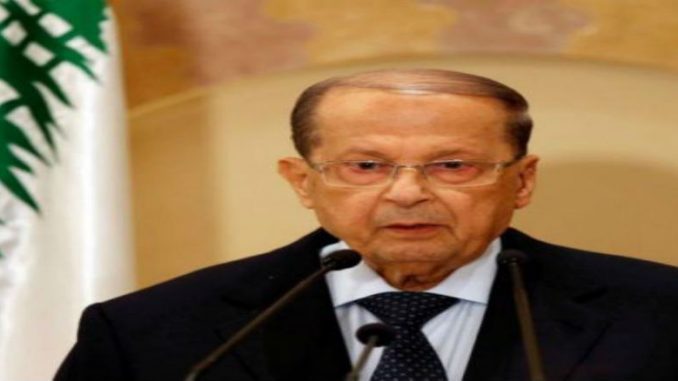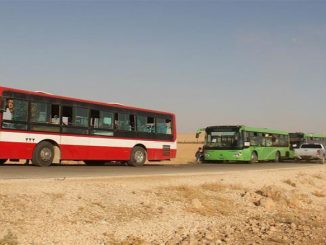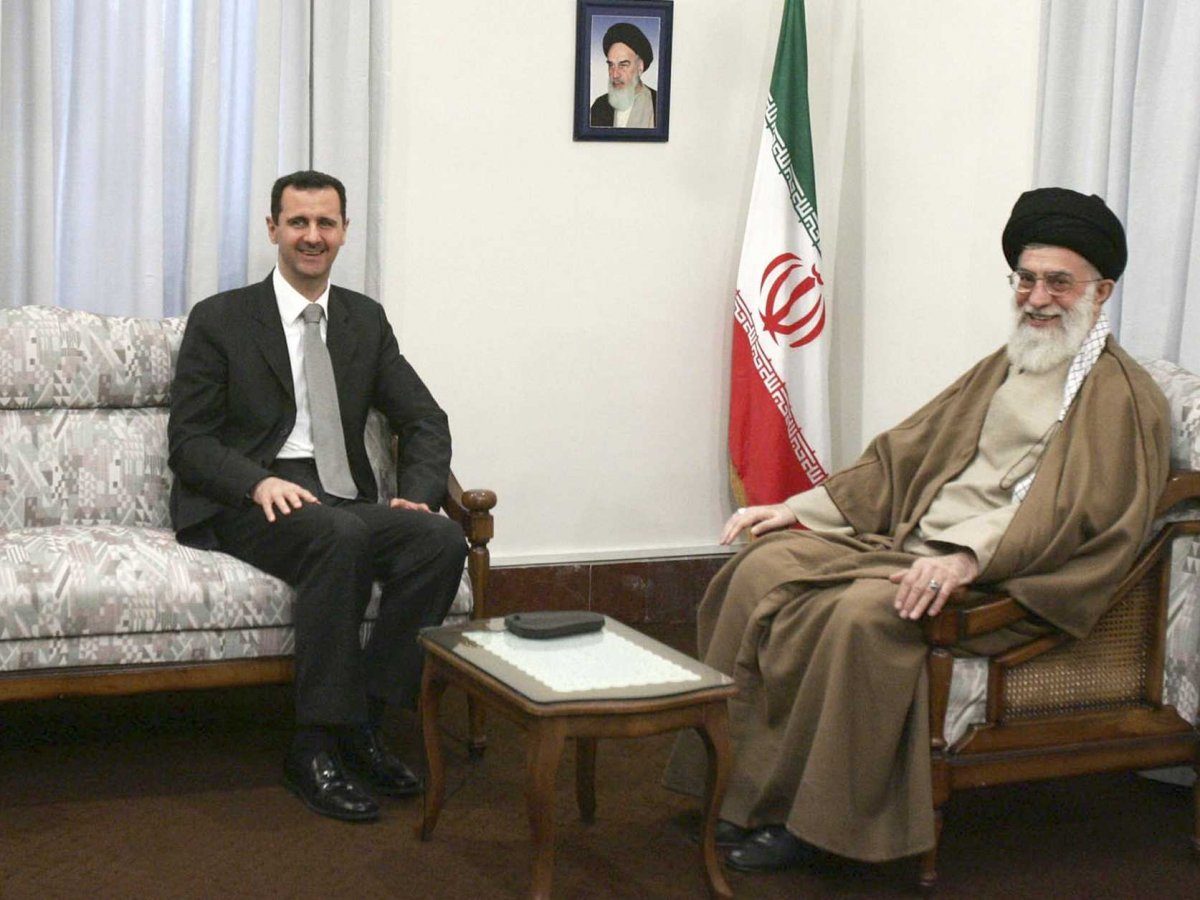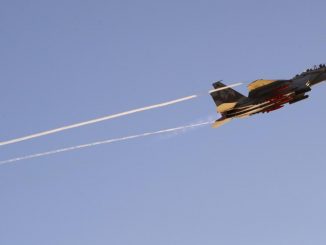
Lebanese President Michel Aoun started Monday his first visit to Cairo since he was elected last October for talks with his counterpart Abdel-Fattah al-Sisi.
In a joint press conference, al-Sisi said his talks with the Lebanese leader issued regional developments, including terror-combat and the Syrian crisis.
He also said, “Our talks also dwelt on ways of bolstering bilateral relations, especially in the fields of trade and economy.”
On the security level, Al-Sisi also said that Egypt was ready to provide support to the Lebanese army with a view to fighting terrorism.
The two sides “agreed on the need to stand together against the dangers of terrorism”, al-Sisi said, adding that Egypt was ready “to support the capabilities of Lebanon’s army and its various security bodies”.
For his part, Aoun said his current visit to Egypt aims to underline the depth of relations between the two states.
Aoun said, “Hopes of the role that Egypt could play are high. An Egypt of moderation and openness… could launch an Arab rescue initiative based on a strategy to fight terrorism.”
Regrading Syria, Aoun said that Egypt could “work on finding political solutions for the crises in the Arab world and especially Syria.”
“Egypt is capable of finding political solutions to the urgent crises in the Arab world, especially in Syria where the fire spread widely years ago and left its effects on Lebanon that manifested in the increase of Lebanon’s population by 50%,”said Aoun.
In addition, Aoun called upon Egypt to lead an “Arab salvation plan” to combat terrorism in the region.
He also invited al-Sisi to visit Lebanon and confirmed that Egypt has offered to provide support for the Lebanese army and the country’s security forces, without giving further details.
There is no doubt that both parties focused on security concerns such as the continuing crisis in Syria and the conflict in Sinai, but economic matters remain high on their agenda.
It is worth to mention that Lebanon needs to find new sources of growth quickly – after growth rates declined in 2011 – and Egypt also faces a similar economic problem.
If tourism remains limited, especially from outside the region, other sources must be explored.
Both countries are carrying out oil and gas exploration, attempting to impose batch of legislation reform to make doing business easier and hoping to entice their citizens abroad to bring their money home.
In January, Minister of Industry and Trade Tarek Kabil said that Egyptian exports to Lebanon increased by 65% during 2016 compared to 2015, adding that a lot of different fields benefited from the increase.
In the same context, the construction materials manufacturers benefited most from the hike in exports, as their exports increased by 225% to a record EGP 277 million, Kabil said in a statement issued during a meeting with Lebanese agriculture minister Ghazi Zaiter, who was visiting Cairo. Both ministers discussed increasing Egypt’s exports of potatoes to 60,000 tonnes compared to 57,000 tonnes in 2015 worth $57 million.
During his visit, Aoun, who is a Maronite Christian, met with the Pope of Egypt’s Coptic Church, Pope Tawadros II, and he also held talks with Grand Imam of Al-Azhar Ahmed al-Tayeb, the highest institution of Sunni Islam.
Moreover, the Lebanese President is expected to meet with Arab League Secretary-General Ahmed Abul-Gheit during his two-day visit to Cairo.
Aoun is expected to fly on Tuesday to Jordan as part of his current tour in the region.
Last October, Michel Aoun, a former army chief, was elected as Lebanon’s thanks to the support of powerful Iran-backed Shiite movement Hezbollah, ending a presidential vacuum that had lasted more than two and a half years.
A day before arriving in Egypt, Lebanon’s newly elected president defended Hezbollah in remarks he gave to a private Egyptian TV station.
Aoun defended Hezbollah’s weapons, saying the arms of the Shiite group are “an essential part in defending Lebanon.” Aoun’s comments underlined his unabated support for the Iranian-backed Shiite militant group.
Aoun told the Egyptian TV network CBC on Sunday night that “As long as the Lebanese army is not strong enough to battle Israel … we feel the need for its existence.@ He added that Hezbollah “has a complementary role to the Lebanese army.”
At an earlier time, Aoun, whose Christian party is allied with Hezbollah, said that Iran’s support for the group “could continue indefinitely.”
It is worth to mention that Lebanese political factions are divided in to mainly two camps, on one side Aoun’s party and Hezbollah, aligning with Iran, while their opponents side align with Saudi Arabia.
Accordingly, Aoun’s remarks “could spark tension with Sunni powerhouse Saudi Arabia, Iran’s regional rival. The two countries have been engaged in proxy wars across the region for years, “said the New York Times.
The relations between Egypt and Saudi Arabia have strained as their foreign policy is divergent over several regional issues including Syria and Yemen.
In October, Egypt voted on the Russian-backed draft resolution in the United Nations security council. Egypt’s vote to support a Russian Security Council resolution on Aleppo has exposed an unprecedented rift between Egypt and its strongest Arab ally, Saudi Arabia.
The vote triggered the first public condemnation by the Saudis of the Egyptian regime, which they helped bring to power three years ago. The Saudi criticism also coincided with cutting monthly discounted oil shipments to Egypt, a much-needed support for the country’s deteriorating economy.
Last month, Aoun visited Saudi Arabia in an attempt to restore relations, which deteriorated after Riyadh accused Beirut of failing to condemn the 2016 attacks by demonstrators on Saudi missions in Iran after the kingdom’s execution of a prominent Shiite cleric.
In response, Saudi Arabia halted a $3 billion arms deal and banned Saudis and other Gulf nationals from traveling to Lebanon. However, the ban on travelers was lifted after Aoun’s visit, but the arms deal remains on pause.
At that time, senior Lebanese official said that Saudis have conditions to unblock the military aid to Lebanon, suggesting that the arms must not end up in the hands of Hezbollah, which the Saudis view as a terrorist organization, as reported by the Associated Press.



